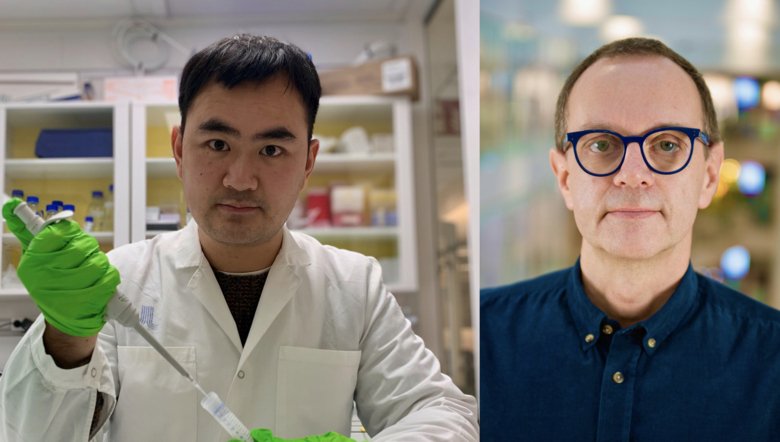A 'heartbreaking' nutritional story – mother's milk helps baby mouse hearts to develop

A new study demonstrates that the dietary fatty acid gamma-linolenic acid (GLA) derived from the mother's milk triggers a metabolic shift essential for heart cell maturation in newborn mice. Researchers at Karolinska Institutet contributed to the study published in Nature in May 2023.
While the relevance for human heart development still needs to be addressed, GLA is found in human breast milk and the GLA-activated nuclear receptors are highly conserved between mice and humans.

Dr. Zhiqiang Huang and Prof. Eckardt Treuter, from the Centre for Nutrition at the Department of Biosciences and Nutrition, have contributed to a study published in Nature on 24 May 2023. The study was led by Prof. Mercedes Ricote at the Spanish National Center for Cardiovascular Research (CNIC) in Madrid and her former PhD student Dr. Ana Paredes as first author.
The study demonstrates that a metabolic shift essential for heart cell maturation in newborn mice is triggered by the dietary fatty acid gamma-linolenic acid (GLA) derived from the mother's milk. GLA was identified as an activating ligand for RXRs, nutrient-sensing nuclear receptors and transcription factors that are essential regulators of metabolic gene expression programs in the heart. The Centre for Nutrition scientists have contributed by applying sensitive genome-wide chromatin profiling methods to map RXR bindings sites along with histone modifications. This allowed to mechanistically link GLA/RXR action to epigenetic changes at enhancers and promoters, cis-regulatory elements that control gene expression, in the developing mouse heart.
GLA is found in human breast milk and the RXRs are highly conserved between mice and humans, but the relevance for human heart development still needs to be addressed.
The work in the Treuter laboratory was supported by grants from the Swedish Research Council, the Swedish Cancer Society, and the Novo Nordisk Foundation.
